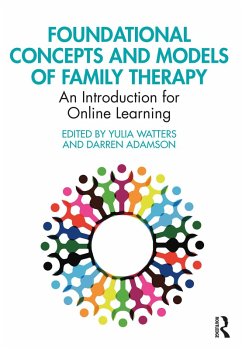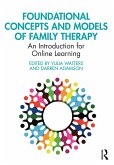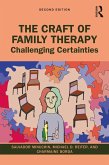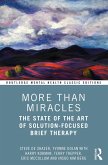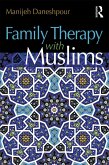Designed specifically for distance-learning, Yulia Watters and Darren Adamson bring together a collection of experienced marriage and family therapists to teach the absolute essentials of marriage and family therapy without peripheral or incidental information. Iterative in its presentation, the book introduces important systems concepts, provides a compelling history of family therapy, presents detailed exploration of classical and postmodern approaches to therapy, and covers clinical application and treatment planning. It uniquely follows the course structure of the first institution to receive Commission on Accreditation for Marriage and Family Therapy Education (COAMFTE) accreditation for both master's and doctoral online programs, giving students the fundamental knowledge they need to help them prepare for their licensing examination and subsequent practice as MFTs.
Written for students seeking to be MFT practitioners, this important volume adds a fresh perspective to teaching and application of family therapy.
Dieser Download kann aus rechtlichen Gründen nur mit Rechnungsadresse in A, B, BG, CY, CZ, D, DK, EW, E, FIN, F, GR, HR, H, IRL, I, LT, L, LR, M, NL, PL, P, R, S, SLO, SK ausgeliefert werden.
Christian Jordal, PhD, Chair, Counseling and Family Therapy Department, Drexel University, Former Editor, Journal of Family Psychotherapy.
"This book offers an amazing collection of helpful chapters which were written by seasoned MFT educators, teaching in an online environment. Readers are exposed to a strong introduction to systemic ways of thinking and practice and to a number of key MFT models of therapy. The book is written in a way that readers can engage the ideas in an interactive way and it has a strong application component. This book is uniquely helpful for those learning MFT in an online environment."
Dale E. Bertram, PhD, Professor of MFT, Campbellsville University Louisville
"Systems thinking and practice in family therapy has proven to advance the understanding and connection of relationships. Exploring the theories identified in this book has pulled together the most important ways to utilize and practice MFT. Therapists from a variety of underpinnings can involve themselves in broadening the scope of application to our larger population. Thank you for such a thorough comprehensive computation for the MFT field."
Tommie V. Boyd, PhD, LMFT.

